“Hey ChatGPT, write me an article about how AI will transform health care…”
It’s a request the artificial intelligence chatbot can successfully complete, but where it thankfully falls short (for my own precious job security) is with not being able to capture the excitement in the room at a panel discussion TD Bank hosted last night with The Ottawa Hospital Foundation on how AI is revolutionizing health care.
It was a thought-provoking discussion that attracted Ottawa’s industry leaders, health care professionals, researchers, innovators, philanthropists and community leaders to the Ottawa Art Gallery. There was a short reception before everyone headed into the Alma Duncan Salon to listen to The Ottawa Hospital’s Dr. Alan Forster, executive vice president and chief innovation and quality officer; Dr. Doug Manuel, a senior senior scientist at the hospital and Distinguished Professor at the University of Ottawa; and Jeff Chan, senior manager of enterprise innovation at TD. Forster was recently named one of the Top 10 Health Care Innovators by Maclean’s, by the way.
Through a $2-million donation from TD Bank Group, The Ottawa Hospital is creating the new TD Artificial Intelligence Medicine (AIM) Hub to accelerate the development and use of AI in health care.
Tara-Lynn Hughes, senior vice president at TD Bank, welcomed everyone, as did The Ottawa Hospital Foundation’s president and CEO, Tim Kluke, who hasn’t lost his public speaking touch, despite not standing at any podiums over the last few years because of COVID. He predicted the crowd would learn something new that night. “I guarantee you will say to yourself at some point, ‘Really? That’s happening in Ottawa?’ We know you’ll be surprised.”


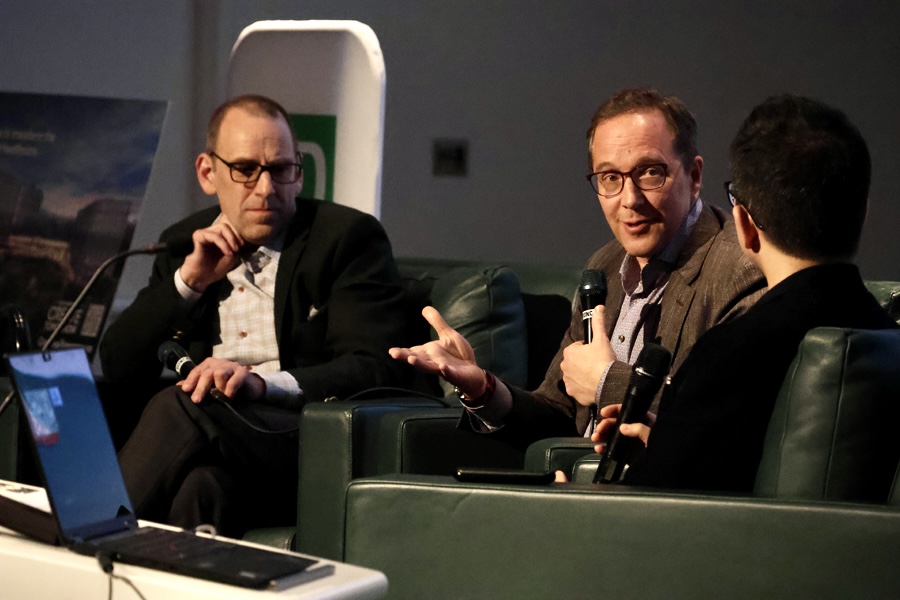

One of the most significant benefits of AI in health care is its ability to improve patient care, the experts said. AI-powered technologies can quickly and accurately analyze patient data, allowing doctors to make more informed decisions about their diagnosis and treatment of chronic diseases, such as cancer, heart disease, diabetes, kidney disease and brain conditions.
In a current environment where many people can’t even find an available family doctor, AI can help reduce the burden on physicians, enabling them to spend more time carrying for patients. It can also help patients stay healthy so that they can make fewer trips to the doctor’s office, the room heard.
The discussion identified a need for collaboration and also touched on some challenges with AI, such as the potential for job losses and the risk of bias and errors.
What the technology doesn’t do is replace the care and compassion, and the personal connection that physicians can provide to their patients, the experts said. “We’re doing some great work in the hospital but it’s all grounded in our vision and mission,” said Forster. “The vision for The Ottawa Hospital is to provide that world-class care, service-excellence and compassion that you would expect for a loved one.”
You’d have to be living in an alternate universe to not know of The Ottawa Hospital’s plans to build a new state-of-the-art campus near Dow’s Lake. It will replace the tired and aging Civic Campus, which is currently just shy of 100 years old.
“Tonight, we’re talking about data and how it will transform the health care industry,” said Kluke. “The Ottawa Hospital is also transforming the health care landscape in our region.”
The hospital foundation and its campaign executive is in the process of raising $500 million from the community toward the $2.8 billion project. Its Campaign to Create Tomorrow will mark “the single-largest investment in healthcare in our lifetime,” said Kluke of the “once-in-a-generation opportunity” to transform health care and, for donors, to leave a legacy in our city. The new campus is slated to open in 2028.
“We will build the most technology-advanced research facility in the country, and we have been absolutely humbled by the community response to our campaign,” said Kluke.
Among those who left the discussion feeling inspired was Nadir Patel, senior strategic advisor in the business law group at Norton Rose FulBright. The Ottawa Hospital is not only a leading-edge facility in Ottawa but also on the world stage, he told OBJ.social. “Sometimes, we take that for granted but, when you see the calibre of talent, the research and the technology, and how pragmatically it’s shaping our future as it relates to health care, I think it’s just phenomenal,” said Patel, Canada’s former high commissioner to India. “I learned a lot today, and this is only a small reveal of what’s to come with this new hospital (campus).”
Emily Jones Joanisse, CEO and co-founder of the non-profit organization Connected Canadians, expressed her approval in how AI doesn’t serve as a substitute for health care but to improve the delivery of health care services. “Our health-care providers are already so overloaded dealing with so many other things right now,” she pointed out. “If artificial intelligence can be used to simplify things, then that makes it a tremendously powerful tool.”
Randy Marusyk, co-managing partner of MBM IP Law, was “astounded” by the level of technology that will be helping both patients and The Ottawa Hospital in the next three to five years. “It’s that short of a time frame,” said Marusyk. “AI is exploding. It’s growing faster than people can comprehend. In a positive way, that’s going to affect patient care and the way we collect and analyze data.”
AI doesn’t replace the deep need to keep human help accessible, he noted. “People still want to hear from other people, on solutions, so it’s going to augment health care, in a good way.”
After the discussion, guests were invited to tour the gallery and head downstairs to Jackson Café for some face-to-face human conversation.




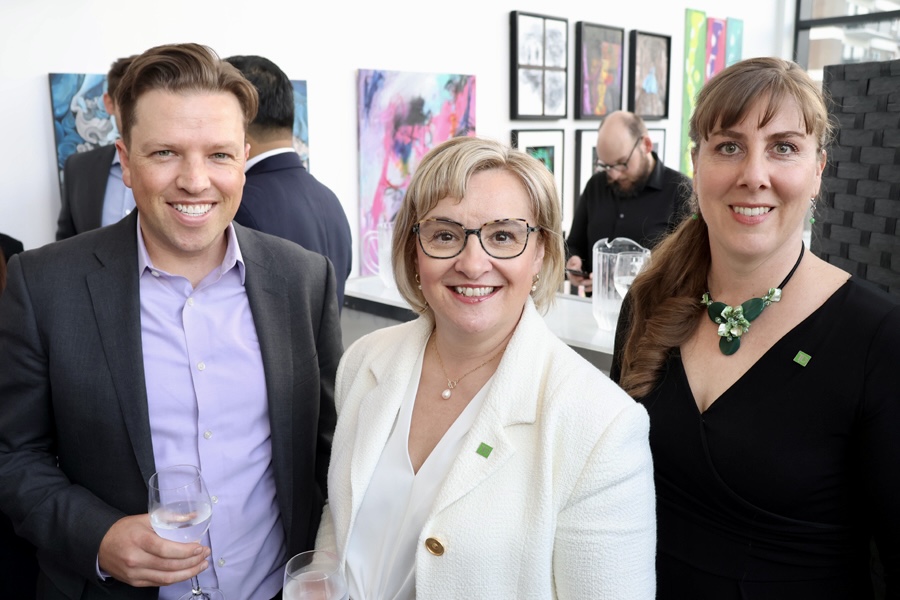

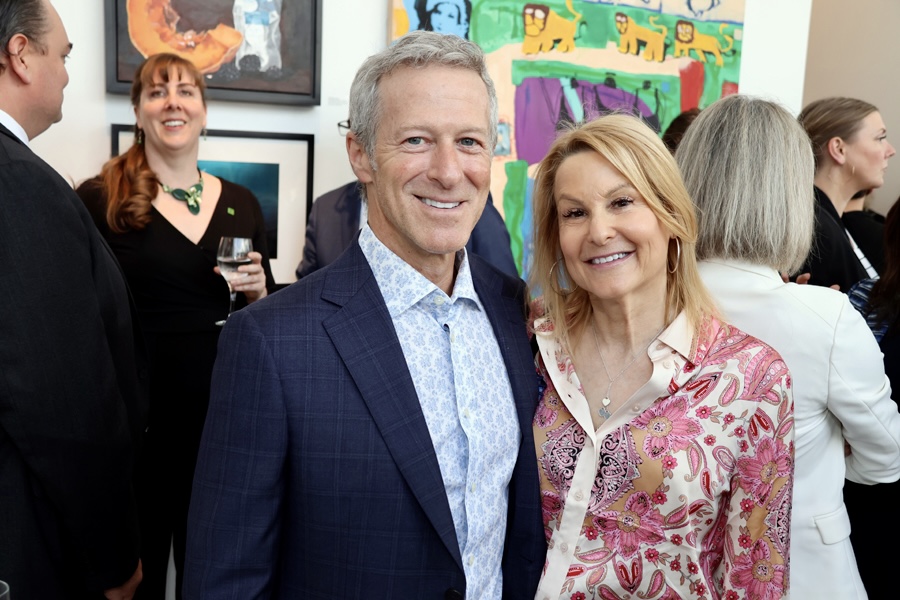


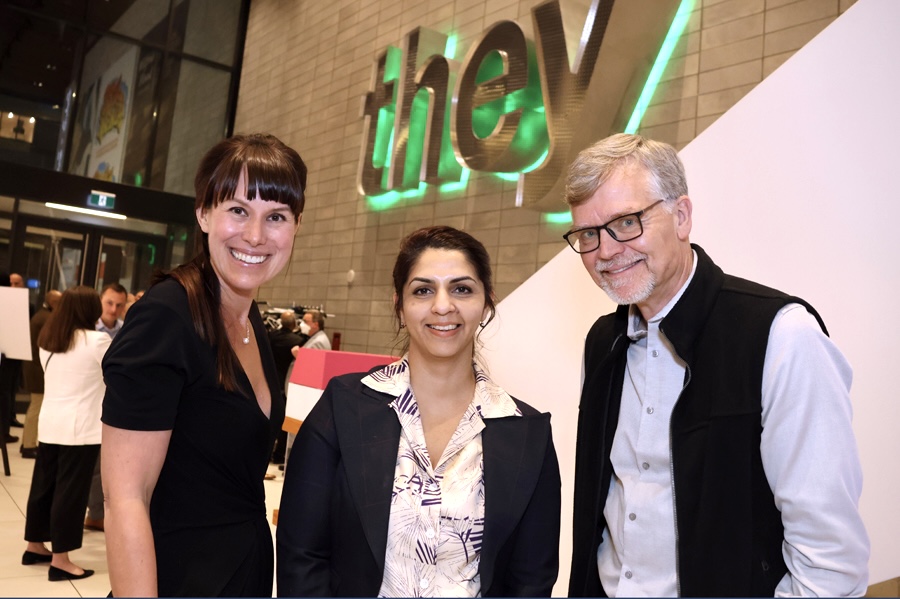
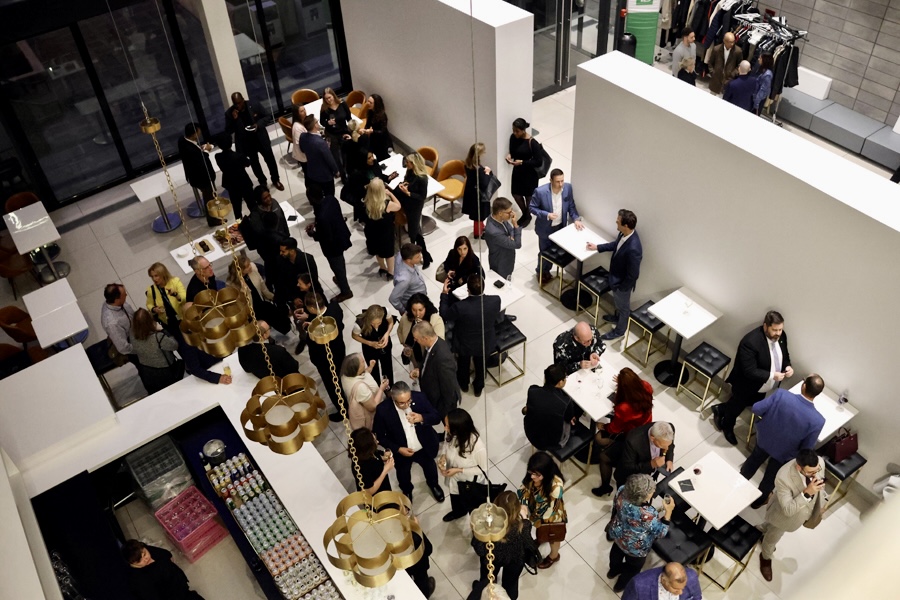
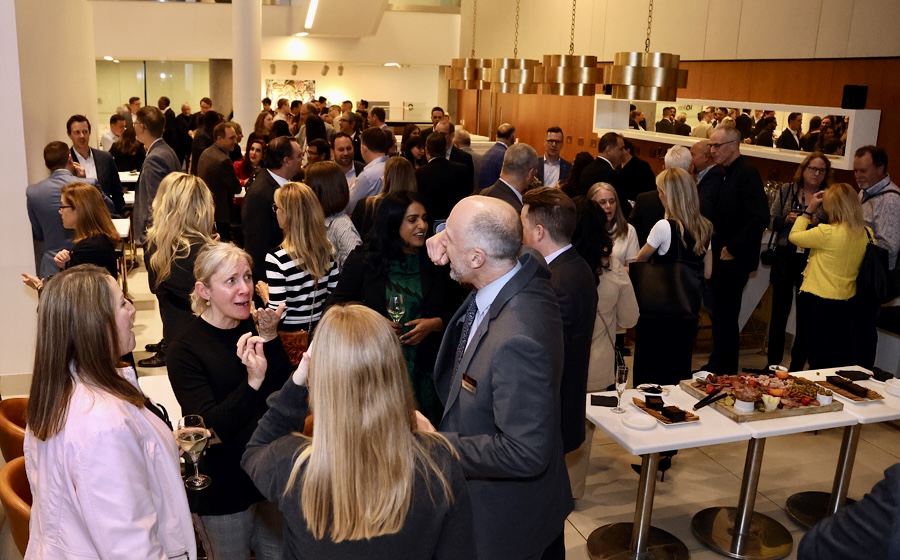
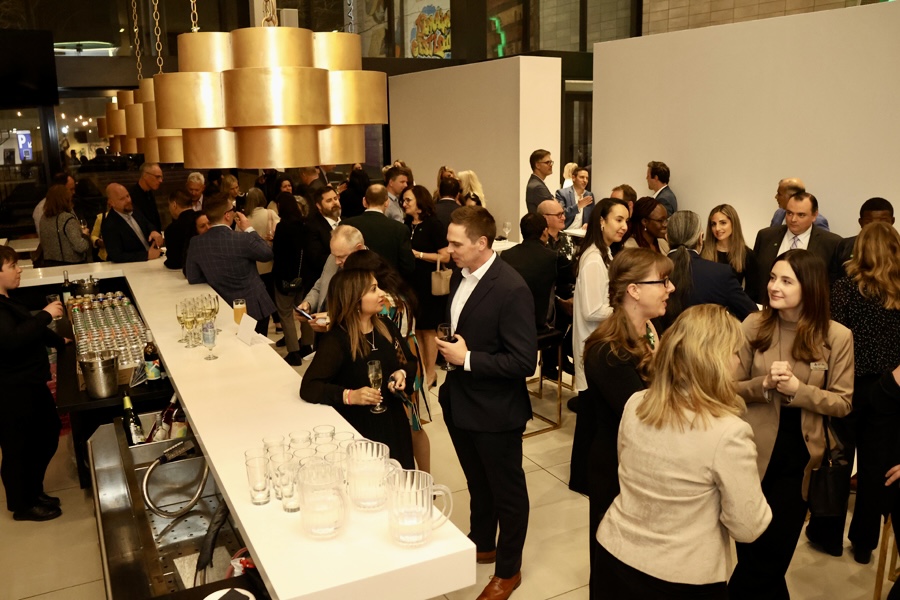
caroline@obj.ca





